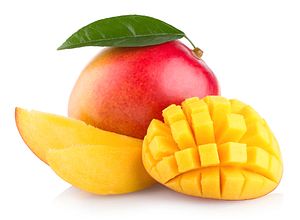Amid the sweltering summer and damp monsoon in South Asia is a silver lining: the arrival of the king of fruits, mangoes.
Traditionally, an “aam ki paitti” (basket of mangoes) has always been a valued gift among family and friends as well as social and business circles. The practice started with Pakistani mango growers sending boxes of the fruit to important people to win favors.
In that vein, Pakistani Foreign Minister Mian Arshad Hussain gifted a crate of mangoes to China’s Chairman Mao Zedong in August 1968.
In the 1980s, the Pakistan government extended the custom of gifting mangoes to its arch-rival India. Despite being the world’s largest mango producer, India has never returned the favor. Later that decade, mangoes got roiled in controversy when explosives in mango crates on board a plane carrying former dictator Zia ul Haq were believed to have brought down the plane, resulting in the death of Zia, several senior military officers, and an American envoy.
Even so, the country formally launched “mango diplomacy” in 2015 by sending mangoes to a number of other countries.
“Every year, the president of Pakistan sends high-quality mangoes as [a] gift to selected countries as part of goodwill and to promote our trade diplomacy efforts,” Pakistan’s Foreign Office said in a statement earlier this year. “The [Ministry of Foreign Affairs] prepares a list of countries keeping in view quarantine regulations, sanitary and phytosanitary requirements as well as availability of flights. Since last year, COVID-19-related stipulations are also part of the consideration.”
The statement was issued to dispute reports in the Indian media that several countries had refused the gift. The Foreign Ministry said the process was still in the planning stages and therefore “there is no question of dispatch of mangoes to any country.”
This year’s mango diplomacy kicked off in July when Pakistani Ambassador to the United States Asad Majeed Khan hosted a select group of American lawmakers, officials, media persons, and scholars for dinner.
By then, the ministry had sent mangoes to kings, leaders, and officials in more than 32 countries including the U.S., United Kingdom, Russia, China, India, Iran, the Gulf states, Turkey, Afghanistan, and Bangladesh.
Scientifically named Mangifera indica, mangoes are native to the Indian subcontinent. The national fruit of both India and Pakistan is grown in almost all tropical regions of the world with China, Thailand, and Indonesia among the top producers.
The fifth-largest producer in the world, Pakistan grows about 400 varieties of the fruit against India’s 1,200 but claims to beat all others in taste and quality.
Mani Shankar Aiyar, a former Indian diplomat, once told BBC that he too believed Pakistani mangoes tasted better. “Having served in the Indian consulate in Karachi, I can tell you that Indian mangoes would have a hard time matching theirs,” he said.
In the 1970s, Queen Elizabeth II awarded the title of “King of Mangoes” to Pakistan’s Kachhelo Fruit Farms during an exhibition in London. The British monarch’s relationship with Pakistani mangoes dates to her coronation in 1953, when Pakistan sent her the Kachhelo variety. They were also gifted to Prince Charles and the Princess of Wales, Diana, at their wedding, and the queen responded by writing a thank you letter.
Pakistan’s most famous mango, Anwar Ratol, has its roots in a village situated two hours from New Delhi. A mango grower from India’s Ratol migrated to the Pakistani part of Punjab many years before the 1947 Partition and transplanted a sprig there – which he named after his father, Anwar.
There are several notable varieties of mangoes, including Sindhri, Totapari, Langra, Fajri, Samar Bahist, Saroli, Maldah, and Dasheri, but it is the Chaunsa mango that accounts for 60 percent of Pakistan’s mango exports.
Pakistan exports mangoes to around 40 countries with Iran, Afghanistan, and the Gulf states absorbing the majority of the trade. The government also anticipates gaining access to the markets of the U.S., China, Japan, and South Korea.
Despite the coronavirus pandemic-induced strains on trade and economy, Pakistani’s exports grew to 140,000 tons against a target of 80,000 last year, generating around $120 million in foreign exchange.
For 2021, the All Pakistan Fruits and Vegetable Exporters and Merchants Association (PFVA) set a target of 150,000 tons, of which the country has already exported 50,000 tons in the first five weeks of the season (May-June).
Unlike 2020, however, mango exports are facing logistics challenges due to reduced airline capacity, increasing freight costs, and a shortage of reefer containers. While the demand is high, harvesting is suffering due to constant changes in climate and a delay in adopting modern farming.
Mangoes have always been in the frontline of Pakistan’s politics. As the U.S. wound down its presence in Afghanistan in the late 1980s, a crate full of exploding mangoes changed Pakistan’s politics.
Four decades later, the U.S. has once again withdrawn its troops from Afghanistan. Tensions are escalating in the region, U.S.-Pakistan relations have soured significantly, and President Joe Biden has snubbed Prime Minister Imran Khan by not telephoning him.
Will Pakistan’s mangoes be able to sweeten souring ties?

































